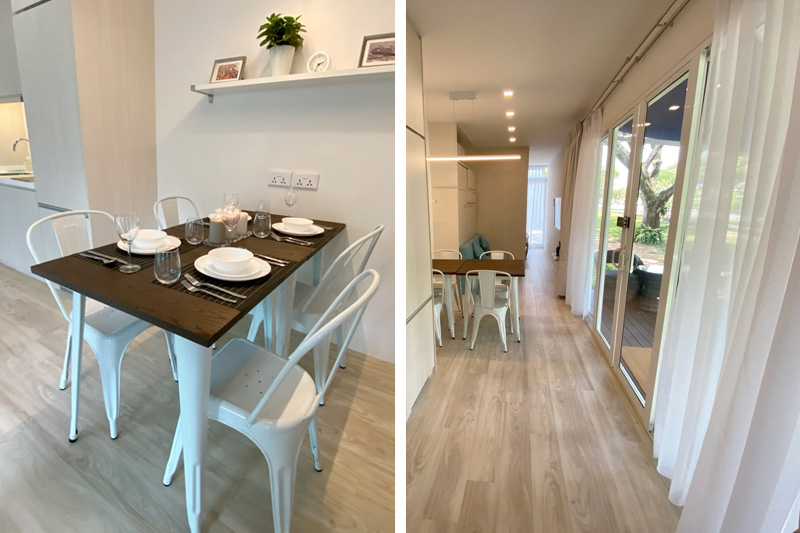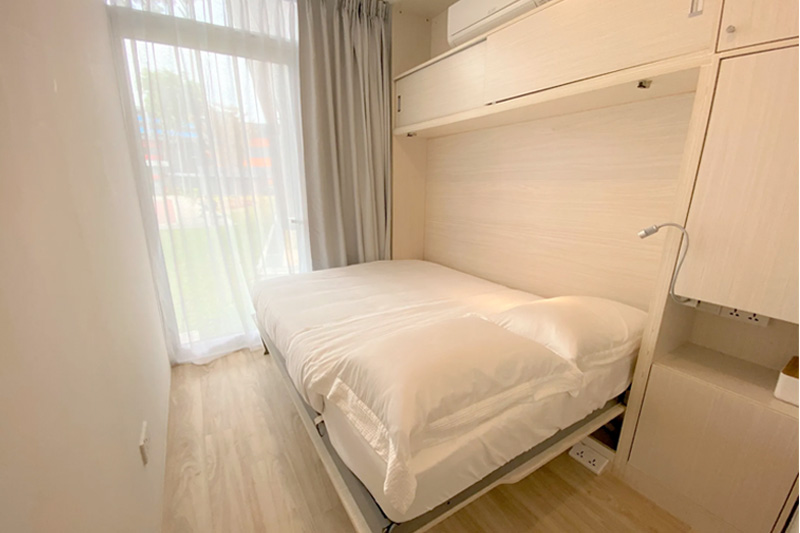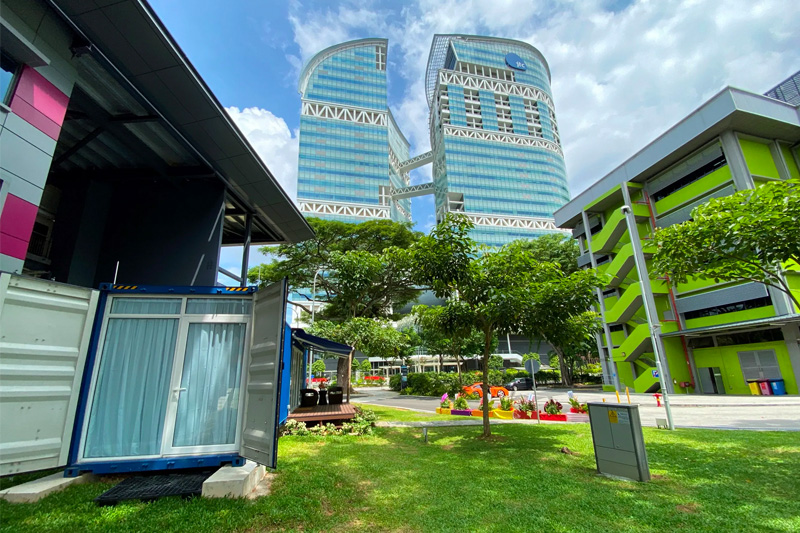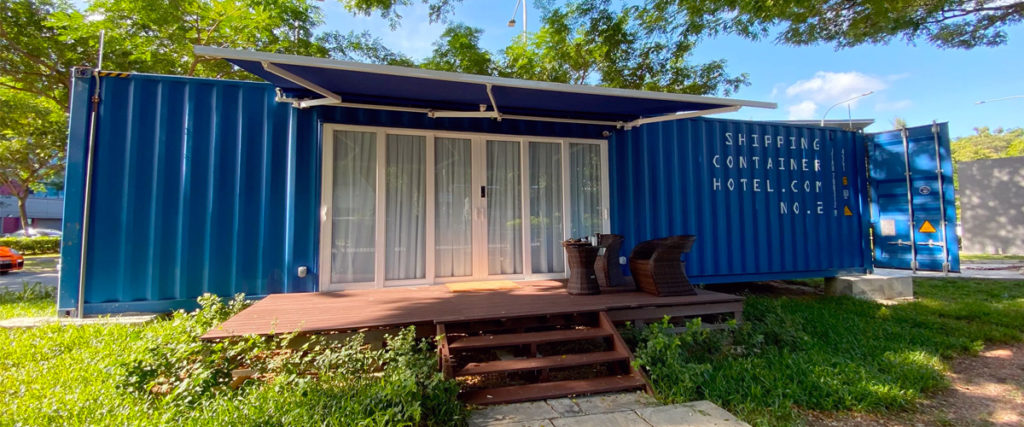Meet the Singaporean entrepreneur trying to revamp his city’s hotel scene with a series of pop-up shipping containers, offering customers a one-of-a-kind luxury experience.
With the rise of Airbnb and ever more unusual temporary vacation homes, the market for innovative spaces designed to be enjoyed on a low budget may well take over the traditional route of hotel chains. Entrepreneur Seah Liang Chiang has set himself on course to be an early disrupter helping to forge this shift with the launch of Singapore’s first Shipping Container Hotel. Armed with a plan to provide ‘luxury living off-grid’ in a series of comfortably-fitted, repurposed shipping containers placed in outstanding spots around the country, he told Hive Life of a future in which hotels are obsolete and containers do the trick.

Having developed his first IT company at 25, Seah went on to establish three businesses in the tech industry, alongside investing in ID Asia, a company data collection and identification company. But, despite his previous successes, he still chased a challenge. “The entrepreneur in me wanted to start a new business which was not related to IT,” he says.
Inspired by the popularised Western notion of ‘a weekend retreat in the mountains,’ Seah began to envision a getaway for himself. “I wanted to experience living in a weekend retreat or cabin, so I googled ‘weekend cabins,’ and ‘tiny houses’ to get ideas from the Internet. That’s when I chanced upon people who used shipping containers.” Seeing an easier route to getting a permanent structure up and running, he sourced his own 40’ container from a local company retrofitting them for office use, downloaded and taught himself to use 3D interior design software to customise it, and set about building a new home in Johor, Malaysia in 2018. Within four months, he had successfully built the home he wanted – one he still stays in for weekend getaways with his family today. Next, he began to think bigger, opening Singapore’s first-ever shipping container hotel in 2019 with his own funds, and, admittedly, “zero experience in the hospitality sector.”
You might also like Could You Live in a Tiny House? This Affordable Housing Solution Hits Asia

Sean’s proposal is to source surplus shipping containers – approximately 500,000 each year are discarded – before adapting them to hotel use with efficiency and mobility in mind, installing murphy walls that allow the structure to be easily packed up and relocated. To date, he has two containers available for guests, both situated at the heart of Singapore’s startup work/play ecosystem JTC LaunchPad @ one-north.“I remember having a cup of coffee on the patio, looking out at the lake when the idea struck me: what if I can offer this experience to Singaporeans?” he remembers. “Many Singaporeans will check into a hotel in Sentosa or in the city over the weekend as a weekend retreat. To me, that’s passé. I want Singaporeans to have a unique staycation. Imagine a staycay in Serangoon Island, Lazarus Island – places where traditional hotels will not be allowed to operate.” To do that, he proposes a chain of ‘Instagrammable’ pop-up containers, each placed in unique spots for two to three years before they’re moved on to another area of interest. The two he has developed so far have bright, airy interiors, each the size of about two car parking spots. Able to accommodate up to four people, they tout a crisp and modern design, but with all the mod cons you’d expect from a hotel. “The pop-up has to have the trappings of a modern hotel, like air-conditioning, hot running water, WiFi, and proper sanitation,” he says firmly. Much of their other infrastructure, however, is a lot less onerous than your average guesthouse. Not only are they off-grid, but there’s also no permanent staff on-site or reception to contend with – guests are given a 24-hour hotline number for assistance and check-in with a digital access code, paying SGD 150 – 200 for a night in these retrofitted getaways.

In the future, Seah hopes to have at least 50 container hotels installed throughout Singapore before expanding to the rest of Southeast Asia. “The main challenge for startups in Singapore is the limited market size for their products and services. We will have to constantly evolve ourselves by offering new places to stay and to redesign our hotels to meet new expectations, and we need to venture into new markets once we are successful in Singapore.” Their current location at the startup hotbed JTC LaunchPad is perfect for getting creatives to test out the idea, but in order to stay competitive, he will need to keep evolving and deliver on those all-important, one-of-a-kind locations. His hope is that “Authorities may be more willing to allow me to place a temporary structure on state-owned or government land, such as beaches, parks, nature reserves,” especially with his promise to “reinstate the land back to its original condition. The key to it is to give hotel guests an experience, not just a hotel room to stay in.”
Related Articles
Struggling to Afford Basic Housing? Micro-Housing OPod Could be the Solution
Could Coliving be the Answer for Asia’s Expensive Cities? This Startup Thinks So.





